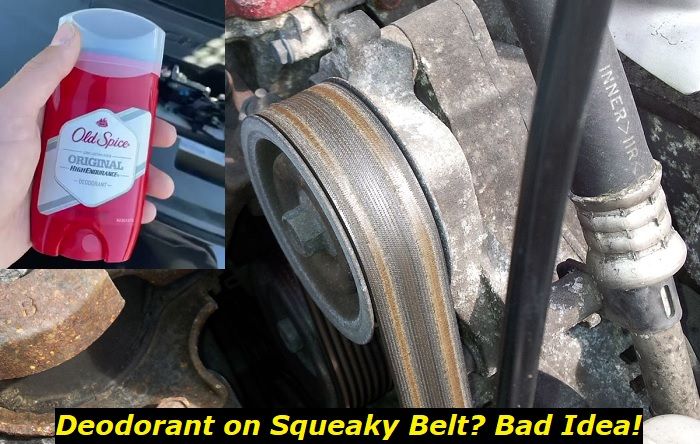ACC/FCW (Adaptive Cruise Control/Forward Collision Warning) is a driver assist feature that helps drivers stay aware of their surroundings and potential hazards on the road. This technology can help to reduce the number of accidents, as it alerts drivers when they are at risk for a collision.
ACC/FCW limited functionality message highlights
- Common reasons:blocked camera, blocked radar, faulty camera or radar, weather conditions
- How to fix:clean the radar and camera areas, check the connections
- Possible consequences:some functions may not be available
- Priority level:Low
- Can you drive?Carefully
- DIY repair:Possible
- Repair price range:$0-$200
.jpg)
What are ACC and FCW?
ACC/FCW is a combination of two driver-assist features: Adaptive Cruise Control (ACC) and Forward Collision Warning (FCW). Each feature is designed to help drivers stay safe on the road. Jeep vehicles are equipped with both features, which often come as part of the stock Advanced Driver Assistance Systems (ADAS) package.
1) Adaptive Cruise Control (ACC)
Adaptive Cruise Control (ACC) is a helpful and convenient safety technology found in many automobiles. This system allows the vehicle to automatically adjust its speed based on the speed of the car ahead of it, maintaining a safe distance between them. It also helps drivers maintain their desired speed while driving on highways or open roads without needing to constantly accelerate and decelerate.
ACC uses sensors to detect the speed and distance of other vehicles, then automatically adjusts the car's acceleration or deceleration accordingly. It has a wide range of benefits, such as preventing traffic accidents by keeping a safe gap between cars, improving fuel economy by reducing unnecessary acceleration and deceleration, and helping drivers stay within the speed limit. ACC is not only convenient and efficient but also helps promote safe driving habits.
The convenience of Adaptive Cruise Control makes it a welcome addition to many vehicles. By providing an automated form of acceleration and deceleration, drivers can focus more on the road while cruising at their desired speed. This technology has allowed drivers to feel more at ease while driving, and its convenience ensures that drivers are able to enjoy the ride without any worry.
2) Forward Collision Warning (FCW)
FCW is a technology designed to help drivers avoid or reduce the severity of a collision. It monitors the vehicle ahead and triggers an alert if an imminent collision is detected. This alert can be in the form of an audible warning, a visual warning, or both. FCW systems also provide support for automatic emergency braking (AEB) by providing the necessary data to initiate braking.
FCW systems are available on new vehicles and can also be retrofitted in some older models. By providing an alert, FCW gives you time to react before a collision occurs or reduces the severity of the impact by initiating emergency braking. This makes it a useful tool for preventing or reducing injury in case of an accident.
FCW is becoming increasingly common in modern vehicles, but it should be used in conjunction with other safety systems to maximize its effectiveness. Always remain alert and follow the rules of the road to prevent accidents before they happen.
The most common causes of "ACC/FCW Limited Functionality"
Jeep, like many other vehicle manufacturers, has recently implemented ACC/FCW systems in some of its vehicles. While this technology is great and very useful, it may sometimes not work as intended due to a variety of reasons. The most common causes of limited functionality or non-functionality are:
- Harsh weather conditions
ACC/FCW systems may not work in extremely harsh weather conditions such as heavy rain, snow, fog, or extreme temperatures. This is because the sensors used to detect other vehicles may become temporarily blinded by the conditions and unable to detect other cars. If you are experiencing this issue, it is best to wait until the weather clears before using ACC/FCW systems. In these cases, manual acceleration and deceleration are the only options to ensure safe driving.
- Insufficient light
ACC/FCW systems are also affected by the amount of light on the road. If there is insufficient light, the sensors may not be able to detect other vehicles and, therefore, will not activate. So, if you are driving at night, make sure to use your headlights and other lights to ensure proper visibility.
- Driving in highly reflective areas
Driving in areas with a lot of reflective surfaces, such as tunnels or highly reflective asphalt, can also reduce the functionality of ACC/FCW systems. This is because the sensors may be temporarily blinded by the reflection, and as a result, they won't function properly.
- Faulty camera and sensors
Sometimes, ACC/FCW systems may not work properly due to a faulty camera or sensor. If this is the case, it is best to take the car to a professional for repair. The price of these repairs can be quite costly. Some owners report they had to pay $1,800 or more to get their ACC/FCW system fixed!
- Damage after collision
If the car has been involved in a collision, the sensors and cameras may be damaged or impaired. This happens quite often, especially in front-end collisions, and it can affect the functionality of the ACC/FCW system. If this is the case, it is necessary to take your car to a professional to check and repair the damage.
- Bad battery
A bad car battery may also be the cause of reduced ACC/FCW functionality. Make sure to check your battery regularly and have it replaced if it is not working efficiently.
- Software glitch
Lastly, a software glitch or an incorrect update may also cause ACC/FCW systems to malfunction. If this is the case, you may need to take the car to a dealership for repair and software updates.
ACC/FCW systems are becoming increasingly common in modern vehicles, but they should always be used in conjunction with other safety systems to maximize their effectiveness. Knowing the most common causes for limited functionality or non-functionality of ACC/FCW systems can help you troubleshoot issues and get back on the road quicker. Always drive safely and follow the rules of the road to prevent accidents before they happen.
Some tips to prevent "ACC/FCW Limited Functionality" display warning
There are several tips you can follow to prevent the "ACC/FCW Limited Functionality" display warning from popping up. First of all, make sure your cameras and sensors are always clean and free from any dirt, dust, or debris. This will ensure that the sensors are able to detect other vehicles properly.
Make sure to also keep an eye on the weather and avoid driving in conditions that could potentially cause problems for your ACC/FCW system. Always use your headlights and other lights properly, especially when it is dark or foggy. These tips will help to ensure that you get the best out of your ACC/FCW system.
What is the best way to clean your ACC/FCW cameras and sensors?
The best way to clean your cameras and sensors is by using a soft, lint-free cloth. You should also use a mild cleaning solution, such as diluted vinegar or rubbing alcohol, to remove any dirt or debris.
If necessary, you can use a soft brush or compressed air to remove any stubborn particles. Make sure to avoid using harsh chemicals or abrasive materials, as they can damage the camera and sensor housing. Always follow the manufacturer's recommendations when cleaning your cameras and sensors.
Bottom Line
ACC/FCW systems are great tools for helping to prevent accidents and reduce the severity of an impact. However, they can sometimes malfunction due to a variety of causes. To avoid this from happening, it is important to be aware of the limitations of the system and to use proper driving techniques.
By doing so, you will ensure that your ACC/FCW system works properly and gives you the best chance of avoiding potential collisions.
About the authors
The CarAraC research team is composed of seasoned auto mechanics and automotive industry professionals, including individuals with advanced degrees and certifications in their field. Our team members boast prestigious credentials, reflecting their extensive knowledge and skills. These qualifications include: IMI: Institute of the Motor Industry, ASE-Certified Master Automobile Technicians; Coventry University, Graduate of MA in Automotive Journalism; Politecnico di Torino, Italy, MS Automotive Engineering; Ss. Cyril and Methodius University in Skopje, Mechanical University in Skopje; TOC Automotive College; DHA Suffa University, Department of Mechanical Engineering






Add comment